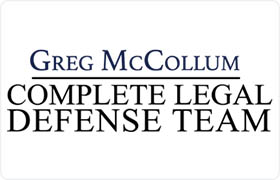 Charleston Afb Misdemeanor Lawyers, South Carolina
Charleston Afb Misdemeanor Lawyers, South Carolina
Sponsored Law Firm
-
 x
x

Click For More Info:
-
Greg McCollum Complete Legal Defense Team
1012 38th Avenue North Suite 202 Myrtle Beach, SC 29577» view mapCriminal Defence Law Complete Legal Defense Team
Our goal at the Complete Legal Defense Team is to examine the facts and circumstances completely and help our clients.
800-634-0690
Not enough matches for Charleston Afb Misdemeanor lawyer.
Below are all Charleston Afb Criminal lawyers.
Sponsored Lawyers
1-8 of 8 matches
Accident & Injury, Criminal, Divorce & Family Law, Estate
Ashley Ameika, Esq. received her Bachelor's Degree from the University of Notre Dame where she was consistently on Dean's List and graduated cum laude. She then went on to receive her Juris Doctor from Thomas Cooley School of Law, where she was on the Dean's List. While in law school she participated in the 60+ Elder Law Clinic and she concentrated in the field of Litigation. She is licensed and is a member in good standing in South Carolina in State and Federal Court. She practices in the areas of serious personal injury, criminal defense, and domestic litigation.
(more)Accident & Injury, Criminal, Traffic, Nursing Home, Elder Law
Nicholas Clekis focuses his practice in the areas of Personal Injury, Workmens’ Compensation, Medical Malpractice, Litigation, Criminal Defense and Family Law. Founding partner, Nicholas J. Clekis received his B.S. from the College of Charleston in 1982 and his J.D. from the University of South Carolina School of Law in 1985. After working with such firms as Morris, Duffy & Boone (formerly known as Hollings, Hawkins &Morris and now known as the McNair Law Firm, PA) and Grimball & Cabaniss, LLC, Mr. Clekis decided to set out on his own, concentrating on personal injury, criminal, and family law.
(more)


 Greg McCollum Myrtle Beach, SC
Greg McCollum Myrtle Beach, SC AboutGreg McCollum Complete Legal Defense Team
AboutGreg McCollum Complete Legal Defense Team Practice AreasExpertise
Practice AreasExpertise


